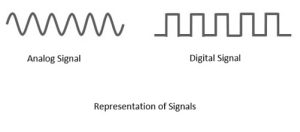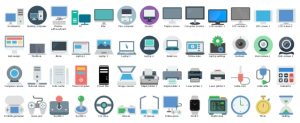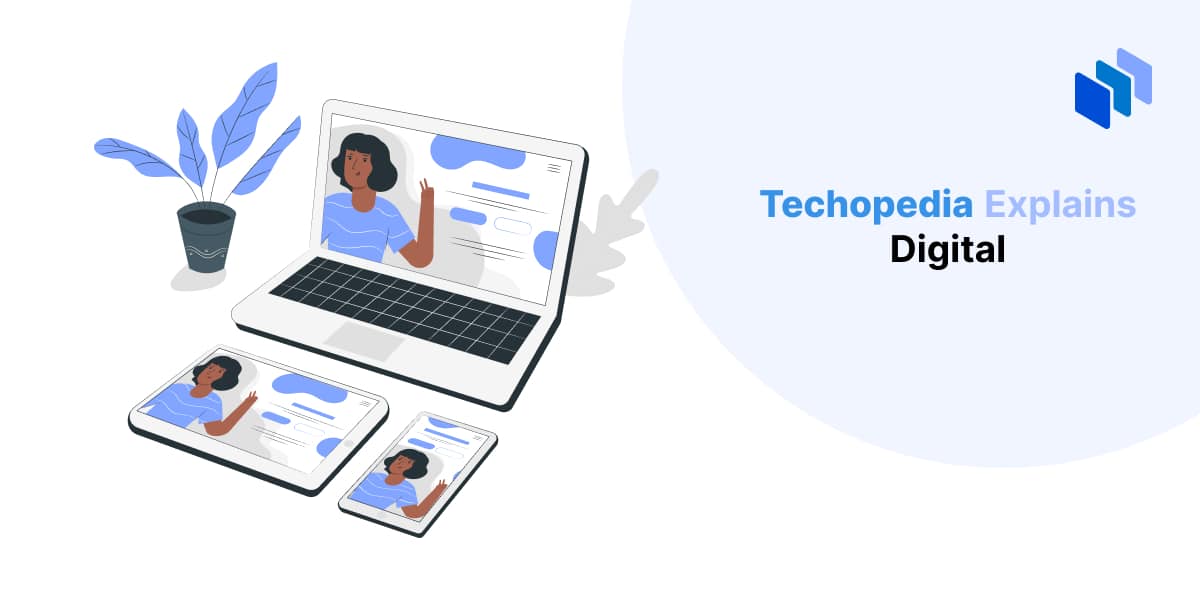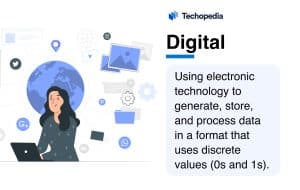What is Digital?
Digital means using electronic technology to generate, store, and process data in a format that uses discrete values, typically represented by zero and one. Data is transmitted and stored as strings of zeros and ones, each of which is referred to as bit. These bits are grouped together into bytes to represent data such as numbers, letters, images, or sounds.
This method of computation is known as the binary system (0s and 1s), and although it seems simple, it can be used to represent huge amounts of complex data, such as a song from iTunes or a downloaded movie.
Prior to digital technology, electronic transmission was limited to analog, which conveys data as a continuous stream of electronic signals with varying frequency or amplitude.
Techopedia Explains the Digital Meaning
Digital data essentially consists of many small samples of a continuous stream, such as auditory and visual signals. The accuracy of digital information depends on how much information is included in each sample, and how it is assembled to convey the digital meaning of the original analog input.
Because digital data essentially estimates analog information, analog is more accurate. This is why some music enthusiasts swear that vinyl records sound better than digital recordings. Records are analog recordings and are, therefore, closer to the actual experience of listening to the music live. However, unlike a vinyl record, a digital recording can be copied, edited, and moved without a loss of sound quality.
How Digital Technology Works
The definition of digital is to express signals or data as a series of digits 0 and 1, representing binary values in electronic devices. Digital technology works by utilizing electronic devices and systems to process, transmit, and store data in this binary format. For example, text, images, and sounds are converted into binary code and then processed by digital devices.

Digital vs. Analog
Types of Digital Platforms
Digital platforms are online frameworks – or ecosystems – where users interact, collaborate, transact, and consume content or services in a digital environment. These platforms use a variety of digital technologies, such as the Internet, data processing systems, and software applications.
Types of digital platforms include:
- Cloud Computing Platforms
- Customer Relationship Management (CRM) Platforms
- E-commerce Platforms
- Educational Platforms
- Financial Services Platforms
- Gaming Platforms
- Healthcare Platforms
- Project Management Platforms
- Social Media Platforms
- Streaming Platforms

Examples of Digital Technology
Digital technology encompasses a wide range of tools, devices, and systems.
Examples include:
- Computers
- Drones
- Gaming consoles
- Internet of Things (IoT) devices
- Smartphones
- Virtual reality (VR) devices
- Wearable devices (i.e. smartwatches)
Pros and Cons of Digital
Pros
- Facilitates seamless connectivity and collaboration
- Enhances information more accessible
- Offers faster communication, data processing, and automation
- Customizes user experiences and tailored content/services
Cons
- Consumes energy and resources, contributing to environmental concerns
- Not everyone has equal access to digital technology (digital divide)
- Over-reliance on digital technology
- Susceptible to cyber threats and pose risks to privacy and security
The Bottom Line
Digital technology influences nearly every aspect of modern life – from the way we communicate to entertainment, education, healthcare, and commerce.
While analog technology may be preferred in specific situations such as audio recording and playback, and signal processing in certain analog circuits (e.g., audio amplifiers or RF circuits), overall, digital technology has many advantages over analog. As such, it has become the most common way of storing and reading data today.







